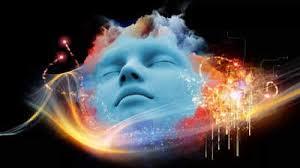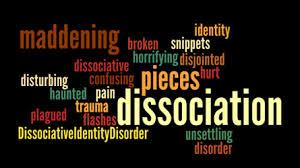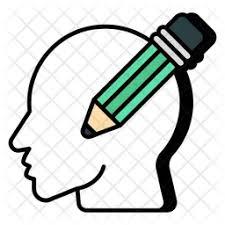
“Dream” is a powerful word. As in I Have a Dream, or The American Dream. Such tropes are powerful because they invoke something we all experience, for hours daily, sometimes quite intensely — and often puzzle over.
This was discussed in a section of E.O. Wilson’s 1998 book, Consilience, about the unification of knowledge.
Freud was the first real dream theorist. It’s actually surprising how little serious attention was previously paid to this giant subject. Freud said dreams are where our unconscious gets loose, the ego (or self) losing control over the id, our deeper instincts. Thusly our innermost desires and fears come to the fore. Yet not explicitly — rather, coded into symbols.
Wilson says Freud was making a good guess, but it was basically wrong.

Modern science actually understands what’s going on, chemically, neurologically, biologically. Sleeping, and concomitant dreaming, serve a biological purpose. Like everything about us, they’re adaptations evolved through natural selection to enhance likelihood of surviving and reproducing. During sleep the brain works at reorganizing and editing information in its memory banks. Dreaming, Wilson says, is likely a side-effect of that — “not, as Freud envisioned, the result of savage emotions and hidden memories that slip past the brain’s censor.”
Explaining further: during sleep almost all sensory input ceases, including bodily motion. Deprived of those normal inputs, the brain nevertheless still tries to keep up its ubiquitous function of positioning you within a coherent picture of the world. And now, cut off from external reality, it resorts to creating a fantasy. It hallucinates. By grabbing images from the corpus of memory it’s meanwhile also been working on. This needn’t be responsive to any deeper waters flowing in the id. Wilson actually calls it a kind of temporary insanity.
Yet he does give half a nod to Freudianism in trying to explain the actual content of dreams, with the brain predisposed to fabricate certain kinds of things, “fragments” that “may correspond in a loose way to Freud’s instinctual drives and to the archetypes of Jungian psychoanalysis.”
My own experience is actually suggestive of something a little more coherently explicable. Yes, there’s surely a large element of the brain simply processing memories. How often I wake from a dream able to connect an element of it to some (typically insignificant) happening in the previous day. Yet there’s also, sometimes, more serious business afoot.

The night after learning I was appointed an administrative law judge, I dreamed of walking down a road flanked by rows of bodies dangling from gallows. Horrified, I queried a passerby. “Don’t you remember?” he said. “You sentenced them.”
Not my brain grabbing some random image, and the interpretation required no psychoanalysis. I was mindful of the weighty responsibilities of my new position (even though it involved no hangings).
Most of my time is spent on numismatics. A small fraction at coin shows, yet my dreams often revolve around coin shows and buying things there, or trying to. Another frequent theme is travel — just trying to get from one place to another, often very complicated, often negotiating through confusing urban streets on foot.

Then there’s the ubiquitous student’s dream of facing an exam without having studied, or even attended class. I experienced constant variations on that long after graduating. It’s not just about school, but about life.
Those school dreams abruptly ceased when I likewise somewhat abruptly left my job. Replaced by two related dream tropes.

I’d accumulated a lot of stuff in my office (notably many boxes of re-usable scrap paper). Made a special car trip to haul it out. But long after, I kept dreaming there was more I’d have to go back and retrieve. And other unfinished business, on old cases, or new ones assigned despite my resignation. It never seemed to get done; drafts not getting typed up, etc. This went on for quite a few years before tapering away.
Again, the interpretations are obvious and had nothing to do with my id, or working through childhood issues, or deep Oedipal impulses.
Indeed, it’s kind of odd that it’s always been pretty rare for my dreams to be sexual. Despite the prominence, in my consciousness, of what was long a frustrating quest for a relationship; then frustrations concerning a lengthy troubled relationship; and since then the “happily ever after” of my marriage, the biggest thing in my life. Rarely has any of this ever figured in my dreams. Why?

And here’s a question I’ve always puzzled over. A dream typically unfolds as a story. Has the brain scripted it out from the start? Does it somehow know how the story will unfold? Or — as with an AI when writing something — does the brain just make it up as it goes along, with no prior plan?
